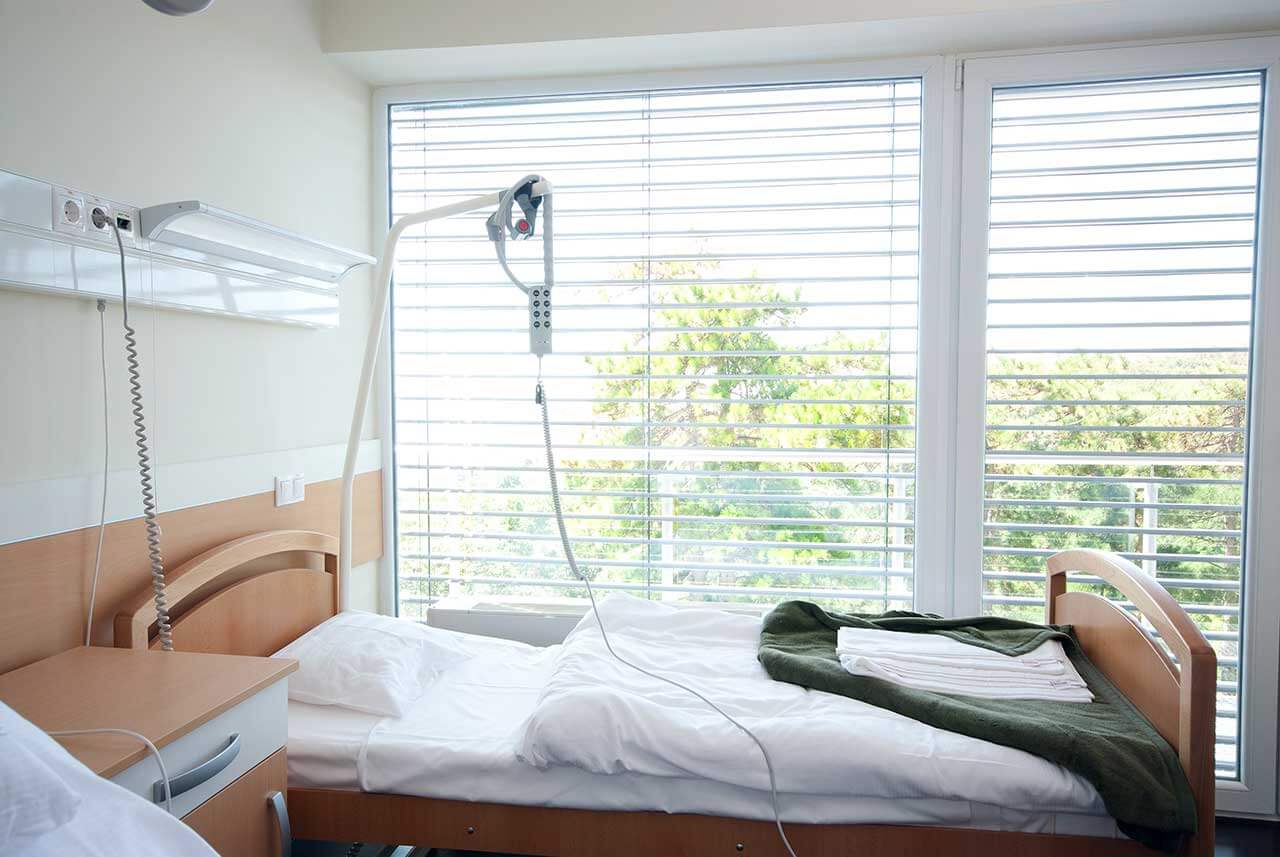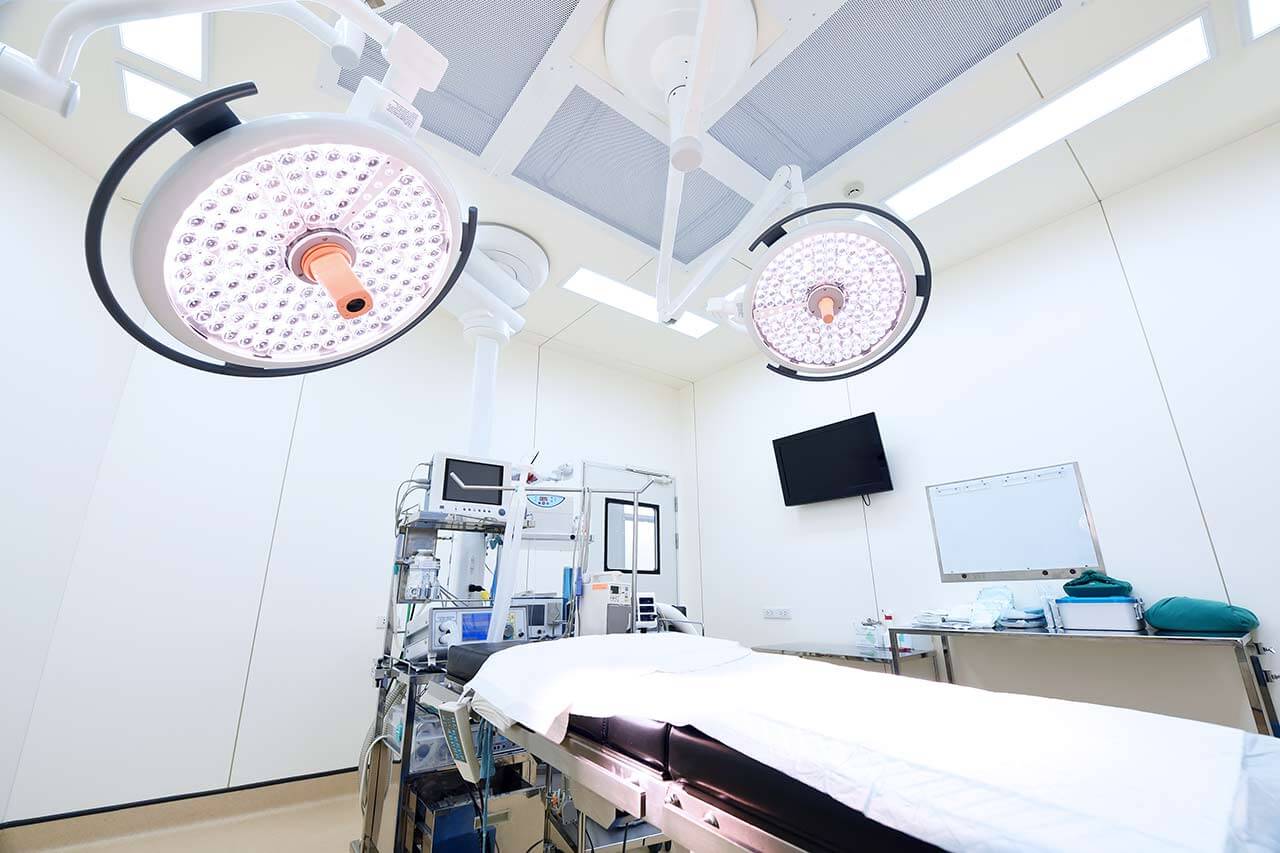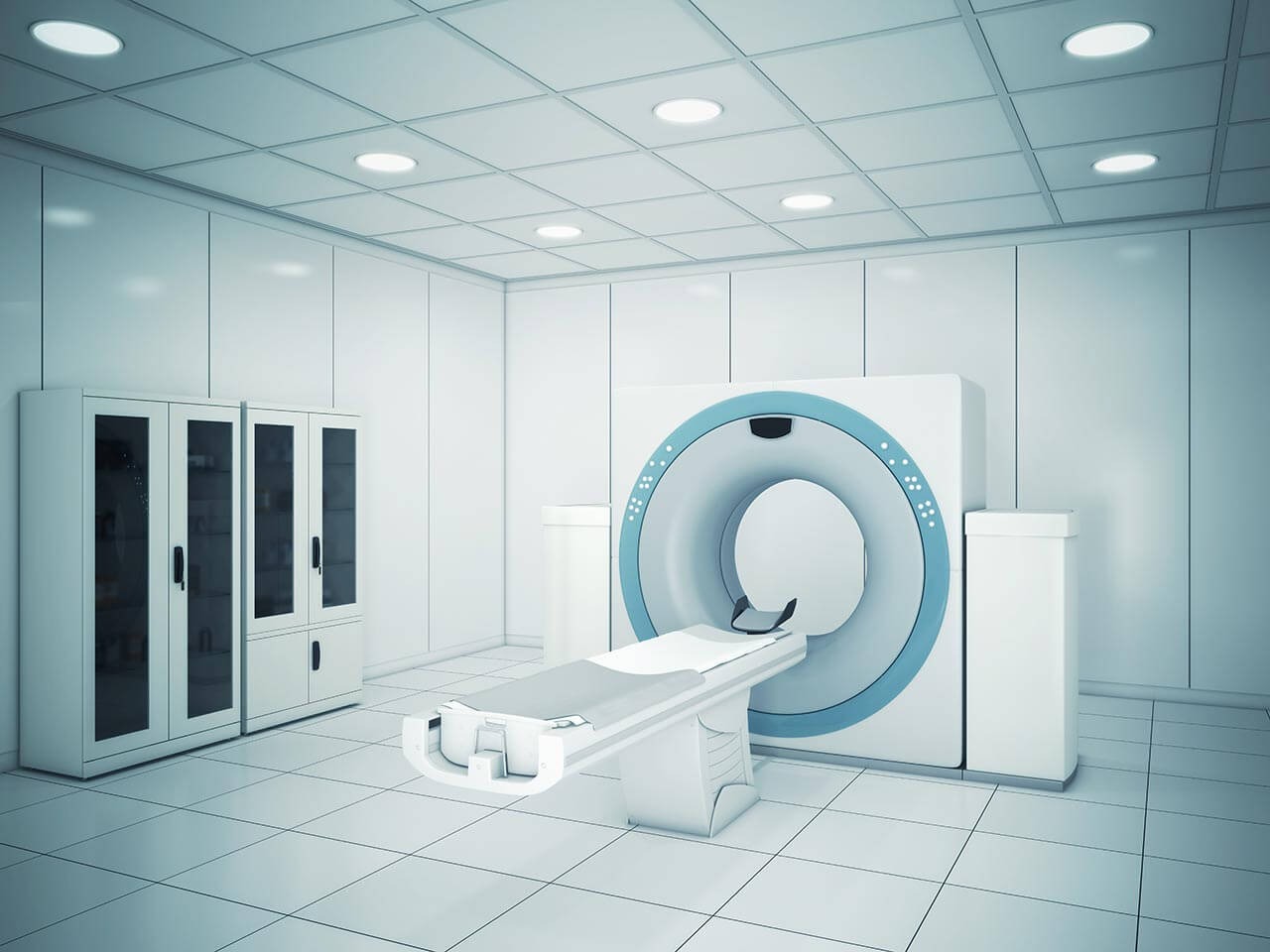
The program includes:
- Initial presentation in the clinic
- clinical history taking
- review of medical records
- physical examination
- laboratory tests:
- complete blood count
- general urine analysis
- biochemical blood test
- inflammation markers (CRP, ESR)
- blood coagulation analysis (aPTT, PT, INR)
- autoimmune tests
- ultrasound of the urogenital system
- CT/MRI of the abdomen and pelvic organs
(if indicated clinically, additional cost is 650/1200€) - nursing services
- consultation of related specialists
- treatment by chief physician and all leading experts
- explanation of individual treatment plan
Required documents
- Medical records
- Abdonimal and retroperitoneum US scan (if available)
- Abdonimal and retroperitoneum MRI/CT scan (if available)
Service
You may also book:
 BookingHealth Price from:
BookingHealth Price from:
About the department
The Department of Nephrology at the Marienhaus Hospital St. Elisabeth Neuwied offers the full range of medical services in the area of its specialization. The health facility provides high-precision diagnostics and effective treatment of kidney diseases and secondary kidney lesions caused by other pathologies. The specialists have unique experience in the treatment of kidney lesions caused by autoimmune diseases and arterial hypertension. The department provides medical care to patients with infectious and inflammatory kidney diseases and acute and chronic kidney failure. The department has 20 beds for inpatients. However, diagnostic procedures and treatment are quite often carried out on an outpatient basis. The department also houses a modern Dialysis Unit with 14 specially equipped beds. The specialists of the Dialysis Unit are responsible for all types of renal replacement therapy (dialysis). This treatment allows for the normalization of blood composition in cases of kidney failure by using a special device to remove metabolic waste products and eliminate excess fluid. The department also provides emergency medical care for patients with kidney pathologies. The medical facility strictly meets hygiene and safety standards, and doctors prioritize the needs and wishes of each patient. The department is headed by Dr. med. Knut Schäfer.
Many common kidney diseases eventually lead to the development of kidney failure. This makes timely detection and treatment of nephrological pathologies particularly important. The department offers its patients effective diagnostic methods, which include laboratory tests, special ultrasound scans, an image-guided biopsy, etc. Pathohistological diagnostics also complement the diagnostic spectrum. Based on the established diagnosis, an optimal treatment regimen is developed in accordance with the current protocols of the European and international societies of nephrology.
The department's medical team is especially interested in the treatment of kidney failure. Patients with this diagnosis receive drug therapy, and if drugs do not help normalize kidney function, renal replacement therapy becomes an option of choice. Treatment takes place in a special Dialysis Unit with 14 beds. Hemodialysis, hemofiltration, and peritoneal dialysis are performed here. The department's vascular surgeons are responsible for creating dialysis access. Control duplex sonography is mandatory performed before and after dialysis access formation. The department also cooperates closely with regional Dialysis Centers. In addition, the department's specialists use plasma exchange and selective adsorption methods to treat severe autoimmune diseases.
Doctors also successfully treat nephropathies. This group of diseases occurs due to kidney lesions in diabetes mellitus, vasculitis, prolonged intake of certain drugs, poisoning, etc. As a rule, doctors use different groups of drugs to control the pathological process and prevent the development of kidney failure. Treatment is carried out on an inpatient basis because it is important for doctors to constantly monitor the patient's condition. With timely medical care, nephropathy responds well to treatment, and kidney function can be fully restored.
The department's key clinical areas include:
- Diagnostics
- Clinical urine tests and microscopic urine sediment analysis
- Clinical and biochemical blood tests: inflammatory markers, creatinine, urea, and various types of antibodies
- Special ultrasound examinations of the kidneys and renal arteries (duplex sonography)
- Kidney biopsy
- Examination of the blood vessels before and after arteriovenous fistula formation for hemodialysis
- Comprehensive examinations for suspected severe forms of arterial hypertension, including secondary forms of hypertension caused by endocrine and renovascular pathologies (in cooperation with the specialists in interventional radiology and vascular surgery)
- Treatment
- Drug therapy
- Renal replacement therapy
- Hemodialysis, including intermittent hemodialysis and hemodialysis with citrate anticoagulation
- Hemofiltration
- Peritoneal dialysis
- Plasmapheresis (for example, for autoimmune systemic diseases)
- Comprehensive follow-up monitoring after kidney transplant surgery, including inpatient diagnostics and treatment for complications
- Other medical services
Photo of the doctor: (c) Marienhaus Kliniken GmbH
About hospital
The Marienhaus Hospital St. Elisabeth Neuwied is an advanced health facility with an excellent reputation in the national medical arena. It is the largest medical complex in the state of Rhineland-Palatinate. The Marienhaus Hospital St. Elisabeth Neuwied is an academic hospital of Johannes Gutenberg University Mainz and an academic hospital of Maastricht University in the Netherlands. The status of an academic hospital provides access to the very latest achievements of European medicine in diagnostics and treatment. The health of patients is in the safe hands of a highly qualified team of doctors and nursing staff. The specialists make every effort to provide each patient with the most effective and personalized care in comfortable conditions.
The hospital has 11 specialized departments, as well as day clinics, outpatient clinics, and specialized centers. Clinical practice offers such medical fields as general surgery, abdominal surgery, vascular surgery, gynecology, obstetrics, radiology, gastroenterology, diabetology, cardiology, trauma surgery, urology, spinal surgery, and pediatric and adolescent medicine.
The hospital has 429 beds for an inpatient hospital stay. The health facility admits about 19,000 inpatients and more than 35,000 outpatients annually. The hospital's specialists provide comprehensive and high-quality medical care focused on meeting the specific needs and wishes of each patient.
The hospital implemented an effective quality control system corresponding to ISO 9001 standards more than 15 years ago. The purpose of this system is to provide continuous and patient-oriented monitoring of medical and administrative processes.
Many departments in the hospital have been awarded prestigious quality certificates, including a certificate from the German Cancer Society (DKG) for the treatment of breast and gynecological cancers, a certificate from the German Cardiac Society (DGK) for the treatment of acute coronary syndrome, an EndoCert certificate for joint replacement surgery, a certificate from the German Society of Vascular Surgery (DGG), and others.
Photo: (с) depositphotos
Accommodation in hospital
Patients rooms
The patients of the Marienhaus Hospital St. Elisabeth Neuwied live in single or double rooms. All patient rooms are comfortable and designed in light colors. Each patient room has an ensuite bathroom with a shower and a toilet. The patient room furnishings include an automatically adjustable bed, a bedside table, a table and chairs for receiving visitors, a wardrobe for storing personal belongings, a telephone, and a TV. Wi-Fi access is also available throughout the hospital. Most patient rooms in the hospital have large panoramic windows, offering a beautiful view.
If desired, patients can live in enhanced-comfort rooms. Such rooms are more spacious, and they are additionally equipped with a mini-fridge, a safe, and upholstered furniture. The bathroom has a hairdryer, a cosmetic mirror, towels, a bathrobe, and toiletries.
Meals and Menus
The patients of the hospital are offered three tasty meals a day: breakfast, lunch, and dinner. There is a choice of several lunch menu options every day. Breakfast and dinner are served buffet-style, allowing patients to choose meals independently. The menu also includes daily options for dietary and vegetarian meals. Individual menus are provided for patients as well, if necessary.
The patients staying in enhanced-comfort rooms are offered tea, coffee, and juices, as well as fresh fruits and snacks, in addition to a varied three meals a day.
The hospital also houses a cozy cafe. The menu includes complex breakfasts and lunches, salads, snacks, desserts, and hot and cold drinks.
Further details
Standard rooms include:
Accompanying person
The accompanying person may stay with you in the patient room or at the hotel of your choice during the inpatient program.
Hotel
You may stay at the hotel of your choice during the outpatient program. Our manager will help you choose the best option.




